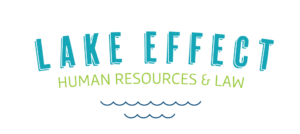UPDATE, May 27, 2020
Public Health Madison and Dane County announced at a meeting today with the Madison Chamber of Commerce that employers are required to document receipt, acknowledgment, or training on the policies required in Emergency Order #3. The order’s original language requiring receipt, acknowledgment, and training was a mistake. We have updated the summary below.
At 8:00 a.m. on May 26, Dane County will start Phase One of reopening under Forward Dane, (note 5/22/20 version updating 5/18/20 version). Public Health Madison and Dane County (PHMDC) have released Emergency Order #3 to coincide with Phase One. The order provides requirements for organizations as they gradually start to reopen. Emergency Order #3 is effective May 26 and will remain in effect until PHMDC determines that we can move into Phase Two.
As with Emergency Order #2, violations of Emergency Order #3 can be enforced by any law enforcement official and will be considered ordinance violations. Please see Forward Dane and the accompanying legal requirements set forth in Emergency Order #3 for new details for your industry.
Below is an outlined summary of Emergency Order #3:
Capacity and Training
- Under Emergency Order #3, Phase One capacity for office, restaurant, bar, salon, store, gym, and other workspaces is now set at “25% of approved capacity” (this reflects a change from “25% capacity” in the original Forward Dane). Until we receive additional guidance from PHMDC, employers should check with their landlord or posted capacity for guidance on their “approved capacity” limits.
- Under Emergency Order #3, employers must develop the required policies, and document receipt, acknowledgment, or training on the policies (this reflects the correction by PHMDC issued 5/27/20). The attorneys and HR professionals at Lake Effect HR and Law can prepare a compliant workplace hygiene, cleaning, and protective measure policy. If you would like to schedule a meeting with us to prepare a customized policy for your organization, please contact us.
Mass Gatherings
- The following limited mass gathering are permitted so long as people maintain physical distancing of at least six feet
- Inside a commercial facility with up to 50 people
- Inside private property or a private home with up to 10 people
- Outside with up to 50 people
- Mass gatherings include concerts, festivals, sporting events, meetings, trainings, conferences, and religious services
- These restrictions do not apply to drive-in movie theaters or other drive-in activities
Child Care, Education, Libraries, and Public Spaces
- Childcare facilities must restrict groups and classrooms to no more than 15 children, and there can be no interaction between the groups or classrooms
- K-12 schools remain closed for in-person instruction
- Continuing education and higher education institutions may determine policies for safe operation, including how to safely open dorms and maintain physical distancing to the greatest extent possible
- Public playgrounds and splash pads remain closed
- Public courts and fields are open but people must maintain physical distancing
All Businesses, Libraries, Community Centers, and Religious Entities
- Capacity must be limited to 25%
- PHMDC previously indicated that each organization will use its best judgment to determine the appropriate metric for capacity. However, Emergency Order #3 limits capacity to “25% of approved capacity levels.” No guidance has been provided on this change. We will follow up with any guidance we receive.
- Organizations must implement required policies, and document that your employees receive, acknowledge and are trained on these policies
- The hygiene policy must
- Ensure employees who have a fever or other symptoms of COVID-19 will not be allowed to work
- Establish hand-washing expectations and ensure supplies are available to employees
- Describe proper cough and sneeze etiquette
- The cleaning policy must include guidelines for
- Cleaning and disinfecting frequently touched surfaces multiple times a day
- Frequently wiping down any shared equipment, such as work spaces, credit card machines, lunchroom items, carts, baskets, etc.
- Cleaning common areas and equipment between use or shift changes
- Cleaning and disinfecting in the event of a positive COVID-19 case on site
- The protective measure policy must ensure
- Individuals are at least six feet from others whenever possible
- Employees are provided with and wear face coverings when unable to maintain at least 6 feet of distance from customers; however, if a transparent partition is in place, a face covering is recommended, but not required
- The hygiene policy must
- Organizations must limit staff and customers on site, and continue to facilitate remote work to the greatest extent possible
- To the greatest extent feasible, organizations should offer virtual services, hold virtual meetings, and/or alternate work teams or stagger shifts
- When remote work is not possible, all organizations must:
- Where possible, offer curbside pick-up and drop-off, and delivery
- Where possible, provide a way for customers to pay, and make appointments and reservations online or over the phone
- Cease door-to-door solicitation
- Ensure physical distancing in waiting areas with appropriate spacing of chairs
Additional Industry Specific Requirements
- Stores that sell food, groceries, and alcohol and non-alcoholic beverages must
- Encourage pick-up and delivery options
- Prohibit self-dispensing of bulk items and condiments, and sampling of food
- Except for produce, prohibit any customer self-service of unpackaged food (e.g. salad bar, beverage station)
- Limit dine-in capacity to 25% of approved seating levels; space tables at least six feet apart; and limit each table to no more than 6 guests, all of whom must live together
- Restaurants and bars must
- Encourage pick-up and delivery options
- Prohibit any customer self-service of unpackaged food (e.g. salad bar, beverage station)
- Prohibit self-dispensing of condiments, and sampling of food
- Limit indoor dine-in capacity to 25% of approved seating limits; space tables at least six feet apart; and limit each table to no more than six guests, all of whom must live together
- Space outdoor tables at least six feet apart; and limit each table to no more than 6 guests, all of whom must live together
- Space bar stools at least six feet part
- Close all play areas and lounge areas
- Retail stores must
- Limit the number of customers inside the business to no more than 25% of approved capacity levels
- Offer at least two hours per week of dedicated shopping time for vulnerable individuals if your store is larger than 50,000 square feet
- Establish lines outside to regulate entry, with markings so that customers can stand at least 6 feet apart; businesses should also consider alternatives such as allowing customers to wait in their cars for a text message or schedule specific times for entry
- Prohibit sampling, including of food and any goods (e.g. make-up)
- Malls may open but play areas and areas of congregation outside stores must be clearly marked as closed
- Salons and spas (e.g. hair salons, day spas, barber shops, nail salons, waxing salons, tattoo parlors) must
- Limit the number of customers to 25% of approved capacity (if capacity of four or less, 1 customer is permitted)
- Space customer chairs, tables, and stations at least six feet apart
- Provide services by appointment only
- Require employees to wear face coverings at all times when customers are present
- Require customers to wear face coverings to the greatest extent possible
- Gyms and fitness centers must
- Provide disinfecting materials for members to use on equipment
- Limit the number of individuals on site (excluding employees) to 25% of approved capacity
- Increase frequency of cleaning of equipment, common areas, locker rooms, and restrooms
- Space equipment at least six feet apart to the extent possible
- Use floor markings to indicate appropriate physical spacing, particularly in areas where people congregate or cluster
- Offer group exercise classes only if physical distancing is maintained and there is no person-to-person contact
- Prohibit all activities where physical distancing cannot be maintained
- Places of amusement and activity must
- Require payments and reservations only online or over the phone to the extent possible
- Schedule events or the start of an activity (e.g. a tee time) to ensure physical distancing between all individuals who are not living together
- Space seating, stations, or other areas to ensure at least at least at least six feet of physical distancing between individuals (individuals who live together are not required to be six feet apart)
- Limit the number of individuals on site (excluding employees) to 25% of approved capacity
- Outdoor venues (e.g. concerts) are limited to a maximum of 50 people (excluding employees)
- Disinfect high touch areas (e.g. door handles, buttons) between each use (if this is not possible, the business may not open)
- Disinfect all equipment between each use
- Lodging facilities (e.g., hotels, campgrounds, AirBNB and VRBO rentals) must
- Prohibit guests from congregating in lobbies or common areas
- Implement cleaning protocols for guest rooms and common areas based on PHMDC guidelines
- Provide personal protective equipment and training to housekeeping staff for proper handling of linens and cleaning/disinfecting supplies
- Comply with all other guidelines, such as those that apply to restaurants bars, if applicable
- Drive-In movie theaters and other drive-in activities must
- Prohibit outdoor seating
- Prohibit customers from leaving their car except to purchase or pick up food or drinks, or to use the restroom
- Encourage pick-up and delivery of food and drinks, and prohibit any self-service of unpackaged food and self-dispensing of condiments
Other industries
- Health care, public health, human services, infrastructure, manufacturing, and government operations are subject to limited restrictions under Emergency Order #3, namely these organizations must implement the required cleaning and hygiene policies, and comply with other applicable PHMDC requirements.
Leased Property
- Landlords and rental property managers may enter leased residential properties if they are wearing face coverings and maintaining physical distancing
The Lake Effect team will continue to monitor important updates such as these from Dane County and other counties across the state. Please keep watching for blogs and emails from us for important legal updates and HR best practices. Contact us at info@le-hrlaw.com or 1-844-333-5253.




